What a strange year 2021 has been! From the bleak mid-winter confusion of “is this a 2020 film or a 2021 film?” to the reopening of theaters for the summer and on through the hazy near-return to 2020 that ended the year, it’s been quite the trip around the sun. But through it all, the movies have been pretty damn good. Plenty of film festivals have kept their digital components, making ambitious smaller films available to a much wider audience than usual, and the films that went exclusively to theaters truly felt like they benefited from the big screen experience. Whether it was at home or in the cinema, I loved my time watching movies this year. They warmed my heart, filled my need for connection with others, and, even on rare occasions, lifted me out of depression. The films of 2021 served as a reminder of our shared humanity and how beautiful it can be when we come together and listen to our fellow human beings share our experiences with each other and walk a mile in others’ shoes. They served as a reminder that even those of us stuck alone in our little boxes aren’t alone because others are going through the same things we are. I have rarely felt more connected to the rest of the world than when watching these films in the past year.
I had a deep affection for roughly my top fifty films (of one hundred seventy-three that I saw this year), and not getting to share my love for them here hurt a little. But I have to be true to what I feel in my soul, and while they didn’t make my top ten, please also check out the rest of my top twenty: “The Harder They Fall,” “The Matrix Resurrections,” “Petite Maman,” “I’m Your Man,” “C’mon C’mon,” “A Hero,” “Flee,” “The Lost Leonardo,” “Ali & Ava,” and “Language Lessons.” I’d also like to give an extra special shout-out to two festival films that don’t appear to have received a full release this year which would have made this top ten otherwise: the mystical, mysterious African thriller “Saloum” and the crystalline, Farhadi-esque social realist Turkish drama “Brother’s Keeper.”
And now, without further ado…
10. CYRANO
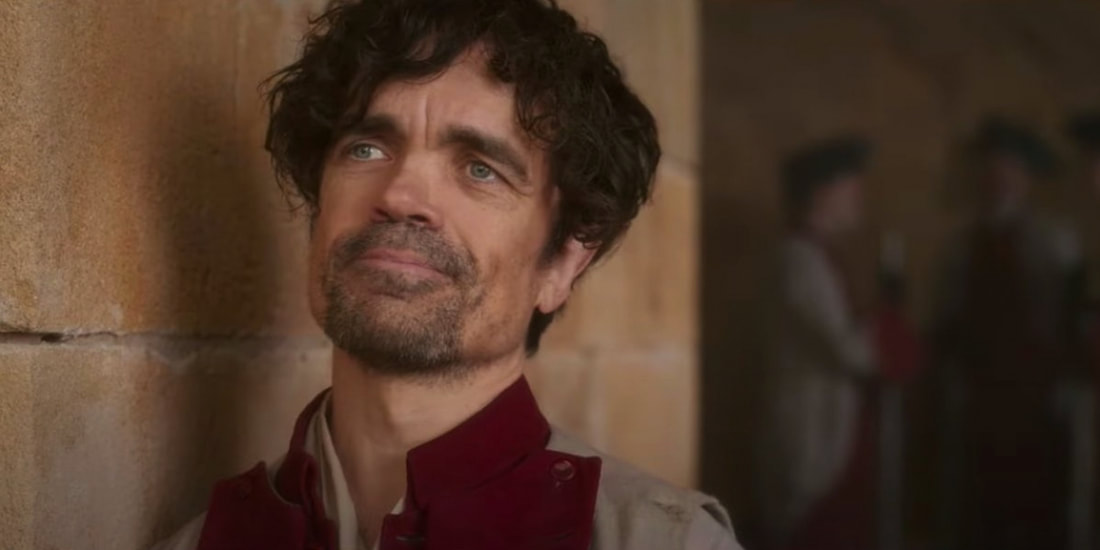
Joe Wright loves love. That was already clear from his filmography, but this musical adaptation of the classic French play “Cyrano” is positively dripping with it. In Wright’s vision, the entire world is full of people either in love or longing for it. From the opening notes of the gorgeous score by the Dessner brothers (Aaron and Bryce, better known as The National), this “Cyrano” announces itself as the most lovestruck romance in many a year. Peter Dinklage is brilliant casting as Cyrano, and Haley Bennett is every bit his equal as the radiant Roxanne. The lush production and deeply felt performances bring thrilling life to the centuries-old story, making it feel contemporary without being anachronistic. The film caught me off-guard on first viewing, especially when it widened its scope in the second act to give a plaintive lament to the soldiers of Cyrano’s regiment that had me in tears. It has only gotten better on subsequent rewatches, like a flower coming into full bloom.
9. MEMORIA

No in-theater experience this year shook me to my core quite like Apichatpong Weerasethakul’s mesmerizing “Memoria.” At first, I was admittedly a bit apprehensive that I would be able to make it through this piece of slow cinema as my first screening of 2021’s Toronto International Film Festival. But it sucked me in right away, and within minutes I was helpless to do anything other than follow the film on its meditative journey through Colombia. As our guide, Tilda Swinton has rarely been put to better use, her innate otherworldliness rendering her simultaneously completely open and unknowable as she tries to find the source of a sound only she can hear. A scene where she meets with a professional sound engineer in an effort to recreate the sound thrums with the tension of a thriller. Still, the patience with which everything plays out is uniquely Weerasethakul. The film’s climax pushes the boundaries of what cinema can do, creating a heart-stoppingly beautiful experience out of nothing but Swinton’s face and disembodied sound. Neon’s unprecedented release for “Memoria” means that you may not get to see it for quite a while, but if and when the roadshow engagement reaches anywhere near you, get a ticket. Love it or hate it, but there’s nothing else like this, and as a cinematic experience, it is very nearly unparalleled.
8. IN THE HEIGHTS
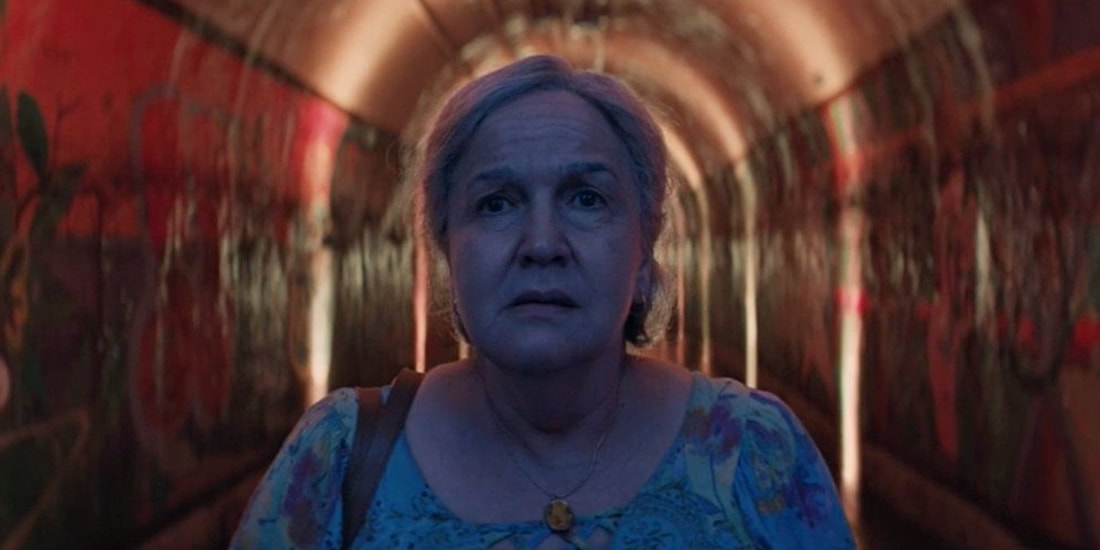
After over a year of not seeing the inside of a cinema, “In The Heights” was my welcome back, and what a perfect one it was! Jon M. Chu’s vibrant musical utilizes every cinematic trick in the book to tell the story of the characters who live on one block of Manhattan’s Washington Heights neighborhood. From the dazzling opening number through to the glorious finale, the neighborhood’s energy comes through in every frame, with every element working together to create a cinematic spectacle in the vein of the legendary Freed Unit at MGM. In a year full of movie musicals, “In The Heights” was the most dynamically cinematic of them all.
7. MASS
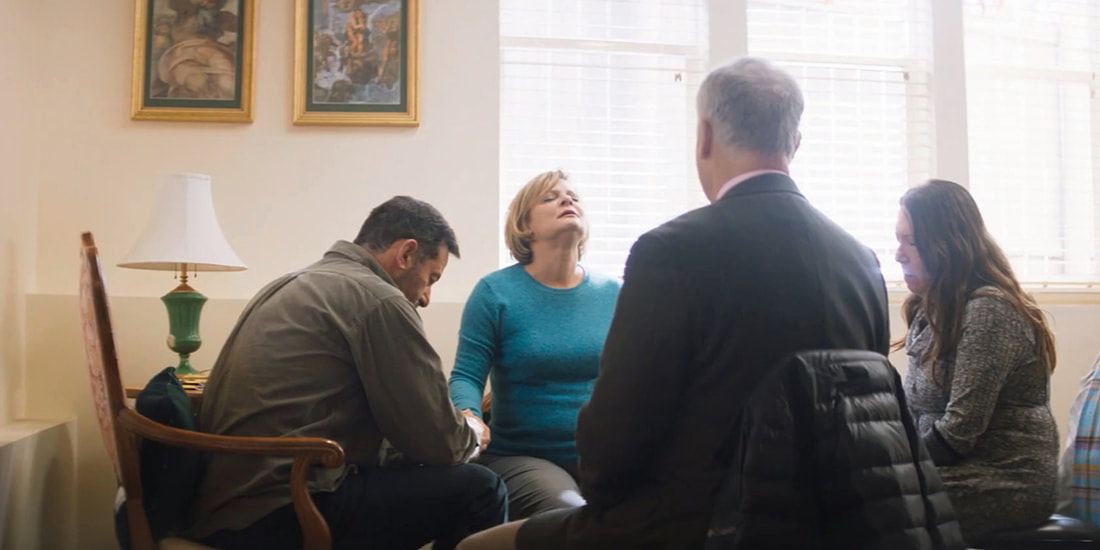
As acting showcases go, they don’t get much better than Fran Kranz’s devastating “Mass.” The note-perfect character comedy of the prologue sets the stage, almost literally: Two couples are meeting for the first time in a church room sometime after a terrible tragedy linked them together. Originally written as a play, “Mass” is the kind of intimate drama that one would assume would be better suited to the stage than the screen, but Kranz (who you might remember as the stoner from “The Cabin In The Woods”) shows such incredible instincts as both a writer and director in his first feature that you almost can’t imagine the piece in any other setting. Weaponizing shot scales and cross-cutting to emphasize the similarities and differences between all of its central characters, this is a chamber drama of the highest order. Reed Birney, Ann Dowd, Jason Isaacs, and Martha Plimpton are the finest ensemble of the year, working together to guide the audience through this journey to forgiveness, both internal and external. That the absolutely towering work of these four performers could go unrecognized by all major industry awards is an (unsurprising) embarrassment, but one that can be at least partially rectified by you watching this film and spreading the word. It’s intense but worth every tear-jerking minute.
6. CODA
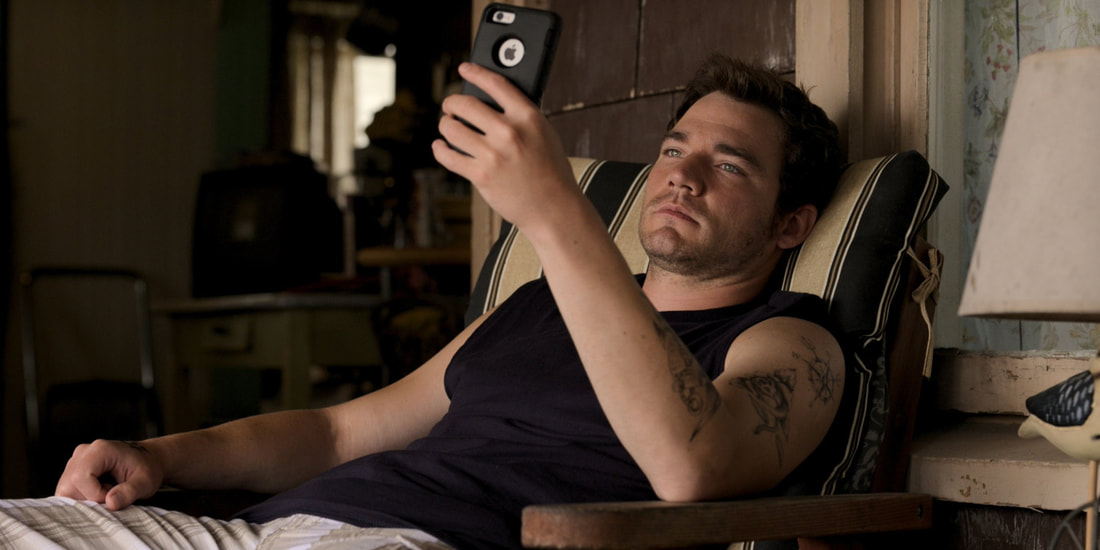
Yes, stories of teenagers discovering their love of the arts are like catnip to me, but “CODA” is so effective that I still cry at certain moments every time. You could argue that’s just like shooting fish in a barrel, but this is a perfectly-calibrated tear-jerker. Ruby (a smashing Emilia Jones) has never had a normal life – her parents (the irresistible pairing of Troy Kotsur and Oscar winner Marlee Matlin) and older brother (the scorchingly hot Daniel Durant) are all deaf, and over the years, Ruby has become indispensable as the family translator and assistant on her father’s fishing boat. She decides to take her love of singing to her school’s choir for the first time, and difficult-to-impress teacher, Mr. Villalobos (Eugenio Derbez), nurtures her talent. Ruby wants to follow her teacher’s advice and apply to the Berklee College of Music, but her family can neither fully understand nor accept this idea. This leads to several revelatory scenes in the film’s second half that easily unlock the audience’s tear ducts through simple, observant direction and keenly felt performances. One of the few films to fully earn the use of Joni Mitchell’s seminal “Both Sides Now,” “CODA” holds few (if any) surprises, but when your story and performances are this effective, it doesn’t matter if you can see the end coming from a mile away. Winner of both the Audience Award and the Jury Prize at the 2021 Sundance Film Festival, Siân Heder’s film is a crowd-pleaser, to be sure, but one that earns its cheers and tears through engaging with thorny characters and issues that we see onscreen all too rarely.
5. SHIVA BABY

‘Shiva,’ in case you didn’t know, is the term for the Jewish mourning period of seven days. During that time, family members of the deceased stay at home and sit in low stools as other mourners visit, bring and eat food, reminisce, and support the family. You may not have been to a shiva, but everyone has been to extended family gatherings where too many people are stuffed into too small a space and long-forgotten relatives that you see once or twice a year if you’re lucky, accost you with a gamut of questions about your life that you probably don’t want to answer. Certainly not for the eighth time in two hours and from which you cannot escape. This is the feeling that writer-director Emma Seligman and star Rachel Sennott capture so brilliantly in “Shiva Baby,” the story of a young woman about to graduate college with a liberal arts degree who makes money on the side as a sugar baby, getting together with older men who give her gifts and cash. The shiva for her distant relative isn’t going great, to begin with, with her ex Maya (Molly Gordon) outclassing her at every turn, but then one of her sugar daddies (Danny Deferrari) shows up. With his beautiful, successful wife (Dianna Agron) and toddler in tow. Suddenly, Danielle’s carefully compartmentalized worlds collide, and everything starts to come crashing down around her. Effectively turning a family gathering into a house of horrors is nothing new, but the careful way in which Seligman allows the film to get more stylized as it goes along, paralleling Danielle’s own emotions, is impeccable, and her screenplay crackles with some of the most quotable dialogue of the year. Ariel Marx’s fantastically jittery string score perfectly complements Maria Rusche’s claustrophobic cinematography, and the flawless ensemble (especially Fred Melamed and Polly Draper as Danielle’s parents) elevates this already pretty great cringe comedy to classic status.
4. TITANE
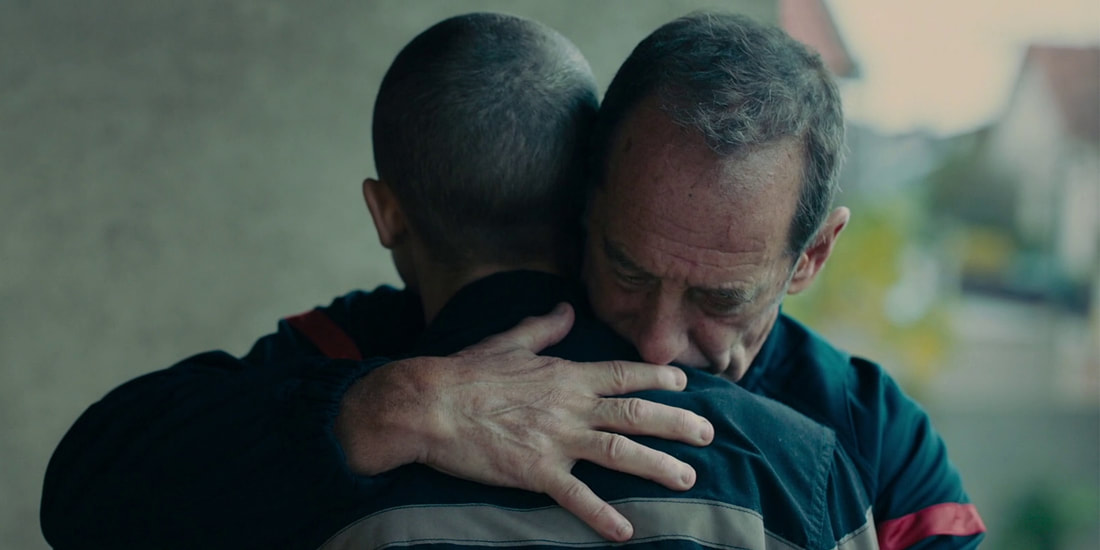
We have all heard the buzz from Cannes. We have all seen the cheekily depraved teaser Neon released even before that. And even still, I don’t think anything can prepare you for the experience of watching Julia Ducournau’s mind-boggling “Titane.” When the balls-to-the-wall, gonzo energy of the film’s first section starts to dissipate, it is a bit unsettling. But then it gives way almost entirely to a tenderness uncommon in cinema these days, and Ducournau’s ultimate vision makes itself apparent. Don’t be mistaken, “Titane” is still one of the strangest, most challenging films of the year, but the places it goes are so surprising even after multiple watches that it is still wholly thrilling to watch. With ferociously committed performances from Agathe Rousselle and Vincent Lindon at its center, “Titane” is a whole lot of movie. But it is endlessly fascinating, and Ducournau pulls its various thematic strands together with impeccable craft. When the press screening at the New York Film Festival was finished, I was at a loss for words, not because I didn’t understand or couldn’t describe what I had just seen, but because I couldn’t believe that what I had just witnessed was real and that it came from the mind of one person. Like its namesake metal, “Titane” has proven extremely durable. We’ll still be talking about it in 10, 20, 100 years.
3. THE WORST PERSON IN THE WORLD
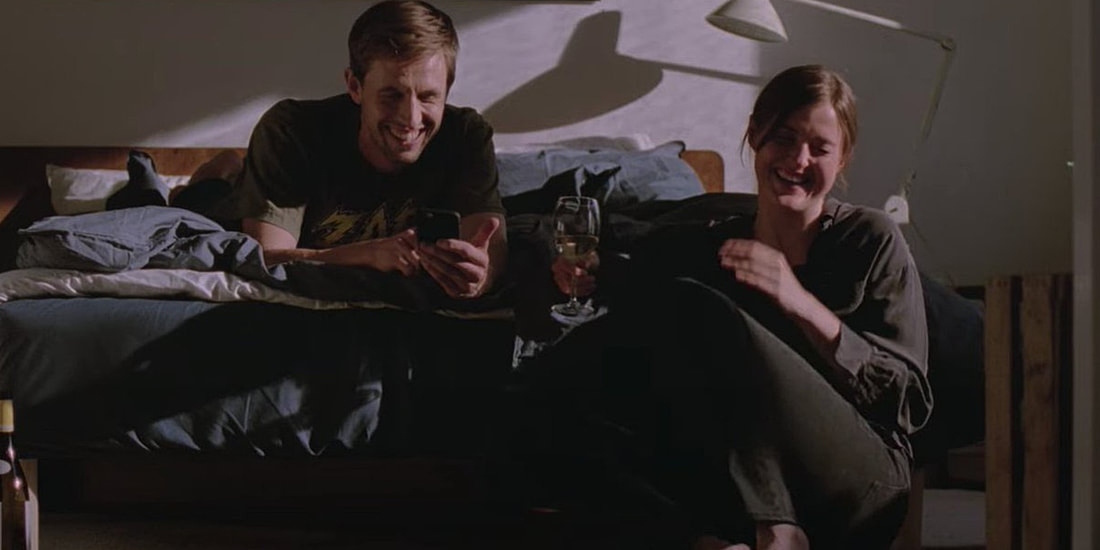
The world is messy and has only gotten messier in recent years. The number of options available to us for just about everything is perpetually growing, to the point that it is a wonder that any of us actually do anything on any given day. Joachim Trier’s “The Worst Person in the World” understands this on a deep, almost primal level. Moreso than any other film I can think of, it captures a distinctly 21st-century ennui: With more roads open to us than ever before, how can we even choose which ones to walk? And when we do, what do we do if and when we realize that we’ve chosen the wrong one? In the hands of the glorious Renate Reinsve, Julie is one of those movie characters that you’d probably be annoyed by in real life, but watching them in a film is fascinating. The film adopts her personality almost completely, ready to fly off on a stylistic tangent at any moment. Thanks to Trier’s consummate craft, this restless nature feels thrilling as opposed to enervating, to the point where Julie’s imperfect, unfocused life feels kind of appealing in its multifacetedness. But just when you’re on a high, Trier shifts focus ever so slightly to the magnificent Anders Danielsen Lie, and the floor just falls out from under you. That contrast between a man in his forties realizing that the world around him has changed and a woman in her twenties just waking up to all the possibilities life has to offer, and the responsibilities that go along with them is supremely moving. Like other films on this list, I had no clue where this was going, and that powerful third act knocked me flat on my ass. I felt seen. I felt attacked. But most importantly, I felt the undeniable power of cinema.
2. BENEDETTA
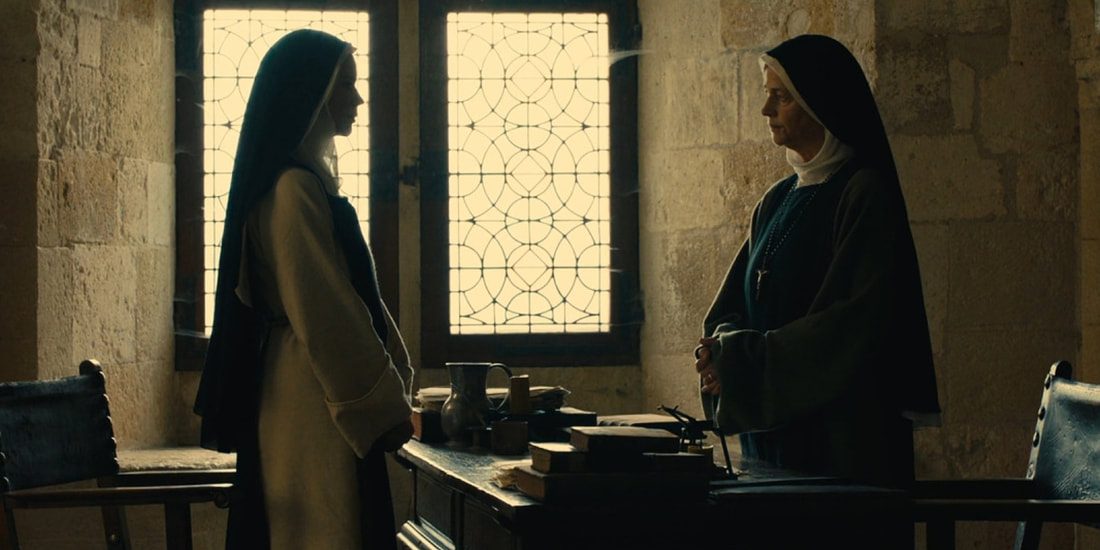
Given how much we talk about Paul Verhoeven’s subversiveness as a filmmaker, it is easy to forget that the man is just as strong a storyteller and all-around entertainer as he is a provocateur. Watching the 83-year-old legend’s latest, “Benedetta,” with a crowd at this year’s New York Film Festival was one of my favorite cinematic experiences of the year. Based on the true story of lesbian nuns at a convent in Italy during the Black Plague, “Benedetta” is filled with salacious imagery and pointed commentary on the Catholic Church, but it is also the best comedy of the year. I’m serious. The righteous Charlotte Rampling digs deep into her pious, distrustful Mother Superior, having a grand old time chomping her way through some of the best zingers of the year, and Virginie Efira pours her own considerable gifts into every nook and cranny of Sister Benedetta, making her a fascinating enigma. Is Benedetta truly chosen by God? Or is she cannily manipulating her way into a position of power? Is she horny for Jesus, or just horny? No one will ever know, but Verhoeven’s beautifully blasphemous film about her makes clear that the real enemy is anyone who uses their power only to maintain it. That it turns into a parable about faith and disease in the vicious last act only further entrenches the film’s status as the film of the year.
1. NINE DAYS
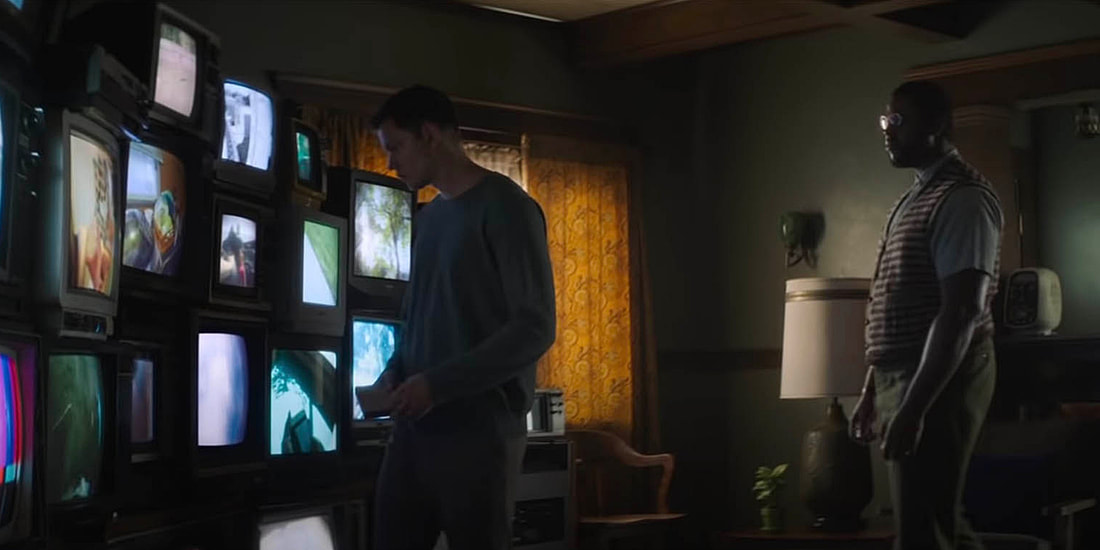
It surprises me a bit, to say it, but “Nine Days” has been my favorite film of the year since all the way back in October 2020 when I saw it as part of the Hamptons Films Festival. And while it is sad that nothing in the year-plus since has topped it… honestly, what could? Edson Oda knocked it out of the park his first-time at-bat. It starts with the story: In some kind of otherworldly space between living and not-living, a man named Will (Winston Duke) sits watching a bunch of TVs, each one showing the life of someone different. When one of Will’s favorite subjects dies, there is now a space open for a new life to be born. We are introduced to a handful of characters, each a soul with a chance at life. Will takes them under his wing as they watch the TVs and tell him what they see and what they think of it. From their observations, he will choose one to be born. The entire process lasts nine days, but most will not make it to the end. For those that don’t, Will gives them a gift: He recreates a scene of their choice from the TVs that they want to experience. Each potential soul represents a different outlook on life but has no experience with it, and watching their reactions to the lives that unfold before them on the screens is incredibly moving. The deeply felt performances and moving score by Antonio Pinto ensure that this is so much more than an intellectual exercise; we are right there alongside these potential humans, feeling what they feel as they witness the joy, sorrow, excitement, and pain of life for the first time. The entire cast is excellent – David Rysdahl as the most fragile soul is the standout, his wide-open face communicating every emotion straight to the heart – but Winston Duke is simply astounding as Will, holding himself back behind thick layers of self-protection that slowly get broken down by the most free-spirited soul (a captivating Zazie Beetz) until he bursts forth in the film’s gorgeous, cheer-worthy final scene. Even now, while writing this, I’m getting choked up. Oda creates an atmosphere that feels instantly special from the opening moments, something delicate that could break with even the slightest misstep and never puts a wrong foot forward. “Nine Days” is simply gorgeous, a film that has the power to change the way we think about living as well as the very act of how we live. It hit especially hard in the bleak days of late 2020 when it seemed as though our lives would be permanently altered in ways for which we were never prepared, and it hit just as hard in the middle of 2021 when we were getting vaccinated and going back to theaters when we had to look at life in a new light. Throughout all the crazy times, “Nine Days” has been a light in the dark, a reminder that life is a vast empty space spreading out before us, beckoning us to move forward and assert ourselves and the fact that we are here. To let future inhabitants of this planet know that we have lived. And that we lived as much as we could.
What do you think of my list? Let us know what you think in the comments section below or on our Twitter account. Be on the lookout for more of our Top 10’s for 2021 and check out our Editor In Chief Matt Neglia’s Top 10 list here, along with Josh Parham, Daniel Howat, Tom O’Brien, Eve O’Dea, Casey Lee Clark, and Cody Dericks’ lists here, here, here here, here, and here respectively. The annual NBP Film Community Award nominations ballot went out yesterday and can be voted on here until February 18th.
You can follow Dan and hear more of his thoughts on the Oscars and Film on Twitter at @dancindanonfilm


